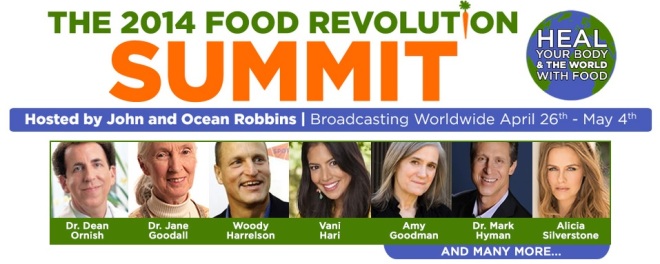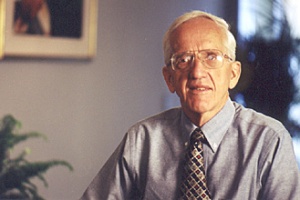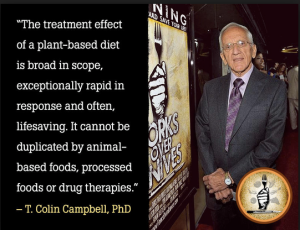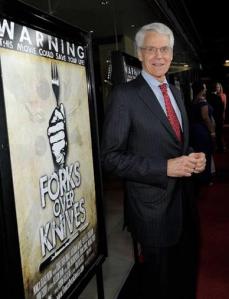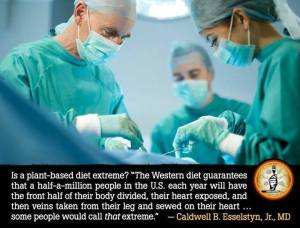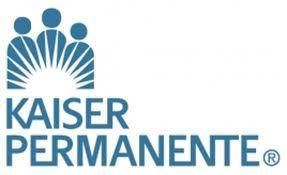 Back in September 2013, the first post on this blog was about Kaiser Permanente advising their doctors to
Back in September 2013, the first post on this blog was about Kaiser Permanente advising their doctors to
consider recommending a plant-based diet to all their patients…encouraging whole, plant-based foods and discouraging meats, dairy products, and eggs as well as all refined and processed foods.
I believe they want their patients to be healthy, but… given that they are a managed care organization, the more of their patients who eat a plant-based diet, the better their bottom line looks.
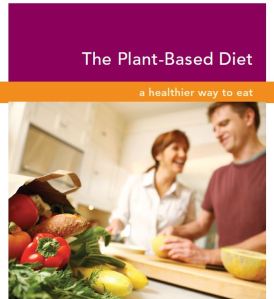 Along with the recommendation, Kaiser produced this 20-page guide with information about the “New Food Groups” their patients will be eating from, tips for getting started, and sample menus and recipes.
Along with the recommendation, Kaiser produced this 20-page guide with information about the “New Food Groups” their patients will be eating from, tips for getting started, and sample menus and recipes.
Reading this guide, I thought I was reading any number of books by Drs. Esselstyn, Campbell, McDougall, Barnard or Ornish.
This explanation of the benefits of a plant-based diet read like the list of benefits from Dr. Campbell’s book Whole.
- Lower cholesterol, blood pressure, and blood sugar
- Reversal or prevention of heart disease
- Longer life
- Healthier weight
- Lower risk of cancer and diabetes
- May slow the progression of certain types of cancer
- Improved symptoms of rheumatoid arthritis
- Fewer medication
- Lower food costs
- Good for the environment
The guide recommends that patients with heart issues stay away from nuts and oils, like Dr. Esselstyn.
What a radical idea – improving health with diet, not pills.
The resources section at the end of the guide points patients to the Forks Over Knives movie and website, and the websites and books of the good doctors listed above. You can download the guide from their website.
Kaiser is my health care provider and the doctor I see there is not necessarily on board with this program. Despite my telling him that I eat a plant-based diet, he suggested I take fish oil to ensure I get enough Omega-3s. He also wanted to make sure that I was getting enough protein. I should have asked him if he ever tells his omnivore patients to eat less.
However, it is great to see the health care establishment embracing plant-based diets for their patients. Whatever the motivation, their patients win.

